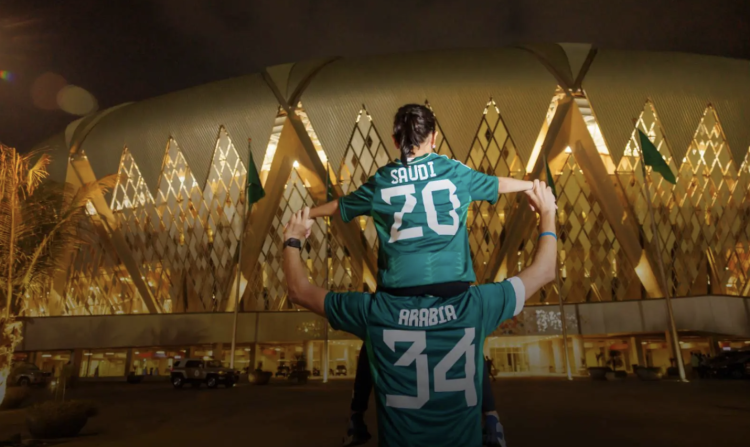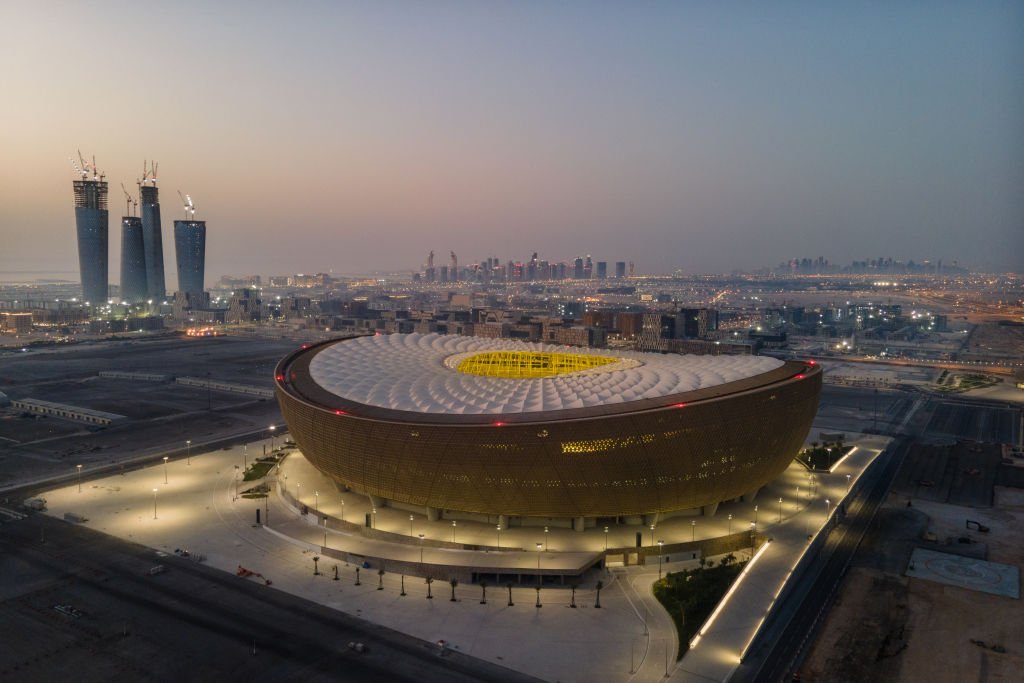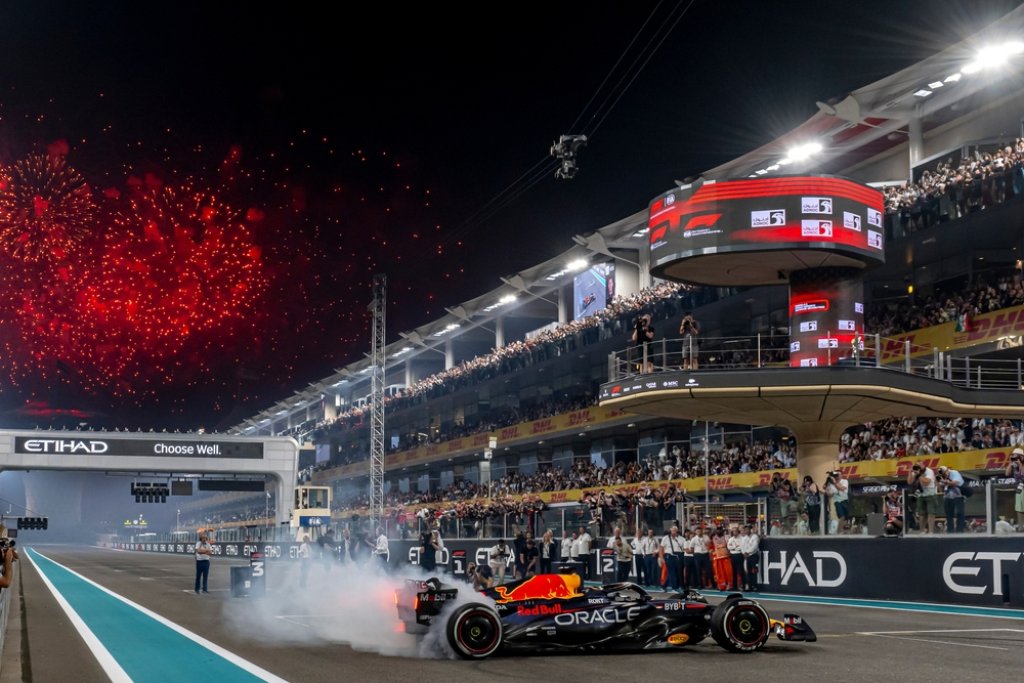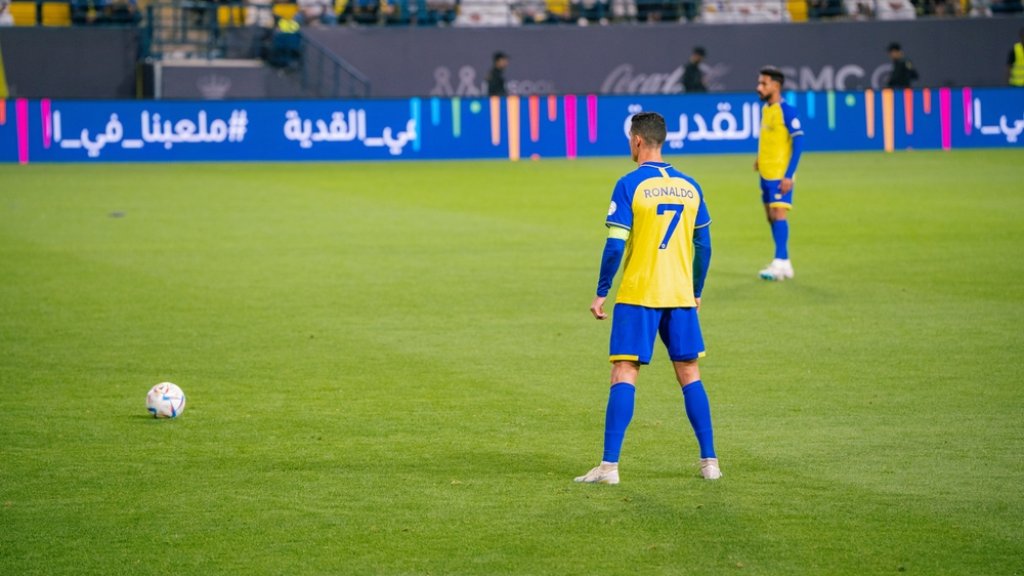Saudi Arabia is set to be named host of the 2034 FIFA Men's World Cup before year's end. With no competing bids for the world's premier sporting event, the announcement is a mere formality – an open secret in football circles. Yet, few realize this won't be the Kingdom's first brush with hosting a FIFA Men's World Cup tournament.
Well, not exactly.
In 1989, Saudi Arabia hosted the FIFA World Youth Championship (now the FIFA Under-20 Men's World Cup). Though the hosts bowed out in the group stage, they managed a stunning 3-0 victory over eventual champions Portugal. The tournament proved a launching pad for future stars like Argentina’s Diego Simeone and Leonardo of Brazil, who would go on to leave indelible marks on the sport – both on and off the pitch.
Saudi Arabia wasn't alone in hosting youth football's showcase event. Qatar, future host of the region's first FIFA Men's World Cup, staged the 1995 tournament – though under extraordinary circumstances. When a meningitis and cholera outbreak forced Nigeria to relinquish hosting duties, Qatar answered FIFA's urgent call with mere weeks until kick-off. The UAE followed suit in 2003, completing a regional trifecta of youth football championships.
Nevertheless, these tournaments represent just one chapter in the region's extensive sporting legacy. Qatar and the UAE have hosted annual professional tennis tournaments since 1993. The Qatar Masters golf tournament has been a European Tour fixture since 1996, while the UAE's Desert Hero Classic stands as the region's longest-running international sporting event, marking its 35th year in 2024. Doha, having hosted the 2006 Asian Games – the world's second-largest multi-sport competition after the Olympics – will reprise its role in 2030 before passing the torch to Riyadh in 2034.
So, why dwell on this sporting heritage when the region is laser focused on the future of sports?
Qatar
Qatar's hosting of the 2022 FIFA Men's World Cup eclipsed previous GCC sporting events in scale and significance. The tournament faced intense scrutiny on multiple fronts, but one less prominent criticism centred on Qatar's supposed lack of sporting heritage – a claim that overlooked decades of athletic endeavours in the region.
Naysayers of the Middle East’s sporting tradition face their own problems, primarily those from countries who question the economic viability of hosting major sporting events. GCC countries, in contrast, have demonstrated their ability to transform these events into profitable ventures whilst simultaneously showcasing their sporting heritage. Beyond the balance sheet, these tournaments serve a dual purpose: diversifying economies beyond the traditional 'petro-state' model and wielding soft power in nation branding.
The 2022 FIFA World Cup in Qatar is a microcosm of this success. The tournament boosted the country's GDP by 4%, injecting $17 billion into the economy and created nearly half a million jobs. With over 3 million attendees, hotels achieved 90% occupancy rates and tripled their profits year-over-year. The momentum showed no signs of slowing down, with tourism surging 58% to over 4 million visitors in 2023, followed by a further 28% increase in international arrivals during early 2024.
Qatar's World Cup infrastructure investments continue to pay dividends. The country secured a 10-year Formula 1 contract with only its second race in a few weeks’ time, and the iconic Lusail Stadium – which hosted the most-watched sporting event in history with 1.5 billion viewers for the 2022 FIFA World Cup final – went on to host the 2023 Asian Cup, setting new viewership records.
Clearly, the white elephant label does not apply as it has in previous sporting mega-events. Even more clearly, Qatar created momentum across various sectors and built-up confidence in neighbouring countries to achieve the same goals.
United Arab Emirates
In the UAE, sports are being elevated from Authority and Council level to that of Ministry, with a Minister of Sport to be appointed soon.
To further drive growth in the sports sector, the UAE government established 24 sports federations to organise major events in collaboration with the private sector and international partners. The UAE’s National Sports Strategy also outlines 17 initiatives designed to increase investment in sports and promote sustainable growth and prosperity in the sector.
The Abu Dhabi Grand Prix, in the Formula 1 calendar for its 16th year, draws over 170,000 fans and A-list celebrities annually, and generated 316$ million in a single weekend in 2023. The Dubai World Cup, poised to become the UAE's most-watched sporting event in 2024, maintains its status as one of the world's richest horse races with a 30$ million purse. These events significantly impact the economy – in Dubai alone, the sports sector contributes 2.4$ billion to GDP and employs 110,000 people, making up 4% of Dubai’s total workforce.
Expanding into new territories, Dubai Basketball Club has joined the Adriatic Basketball League. Success in this league could see a GCC team competing in the EuroLeague – European basketball’s answer to the UEFA Champion’s League, and the second most competitive basketball league in the world after the NBA.
Kingdom of Saudi Arabia
And finally, we circle back to Saudi Arabia, the new frontier of world sport.
In 2023, the Kingdom saw sporting events contribute over 1$ billion to its economy, with the market projected to reach 2.6$ billion by 2027, with Crown Prince Mohammed bin Salman aiming to increase sports' GDP contribution from 1% to 2.5%.
The country's sporting calendar is already impressive. The Formula One Jeddah Grand Prix consistently sells out, drawing 143,000 spectators in 2024, while the 20$ million Saudi Cup has quickly become a premier horseracing event. And most notably of recent times, the Saudi Pro League, which features international stars like Cristiano Ronaldo, Karim Benzema, and Neymar Junior, saw attendance surge 150% since 2023.
The Kingdom is also breaking new ground in esports, hosting the Esports World Cup this summer and partnering with the International Olympic Committee for the first Esports Olympics in 2025. Meanwhile, ambitious projects like Qiddiya and Trojena within NEOM are being developed to host future international events, including the future Formula 1 track when it moves from Jeddah to Qiddiya and the 2029 Asian Winter Games in Trojena.
Add to the mix major investments in golf, tennis, boxing, mixed-martial arts, and an array of other sports, only tells us just how serious the Saudis are about sport.
2024 and Beyond
Looking ahead, two key trends will shape the GCC's sporting future.
First, investment will continue to grow, with Saudi Arabia alone investing 6$ billion in sports since 2021. The hosting of mega-sporting events in particular will prove to play a crucial role in the region’s economic diversification strategy, delivering substantial financial returns, boosting GDP, and enhancing soft power and international reputation. Second, there's an increasing focus on sustainability, with 50% of GCC sports professionals prioritizing long-term venue usage, according to PwC.
The region's sporting calendar remains robust. In addition to the 2030 Asian Games, Qatar will host the 2027 FIBA Basketball World Cup and is potentially building towards a 2036 Olympics bid. Saudi Arabia is preparing for the 2027 AFC Asian Cup, 2029 Asian Winter Games, 2034 Asian Games, and the 2034 FIFA World Cup.
With strong public and governmental support, these events continue to drive economic diversification, enhance global reputation, and strengthen local economies through tourism, hospitality, and infrastructure development – establishing the GCC as a dominant force in global sports. From Formula 1 circuits to football stadiums, from tennis courts to esports arenas, all roads in world sport now lead to the GCC, marking not just a moment, but the continuation of a decades-long commitment to sporting tradition and excellence.









